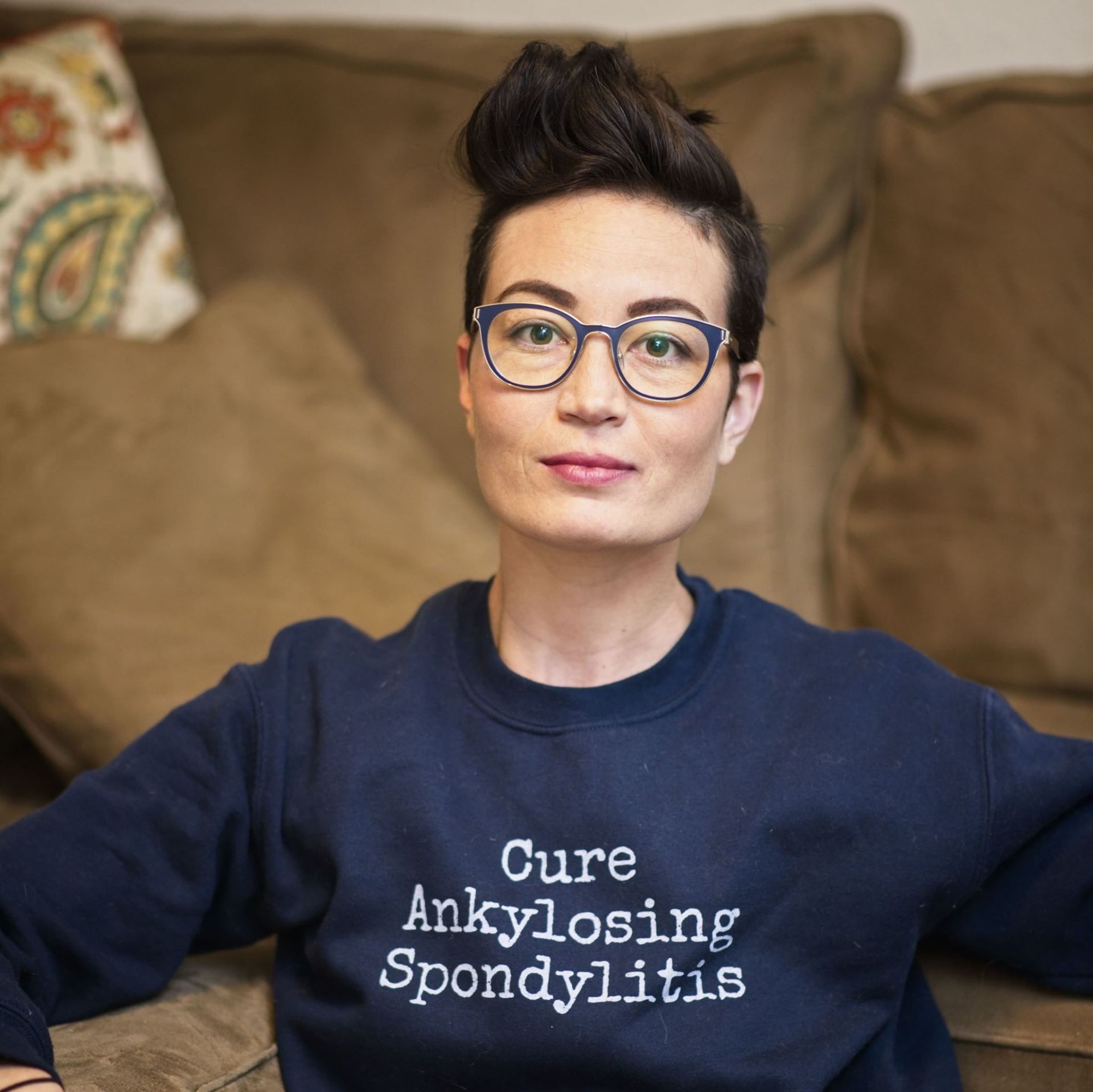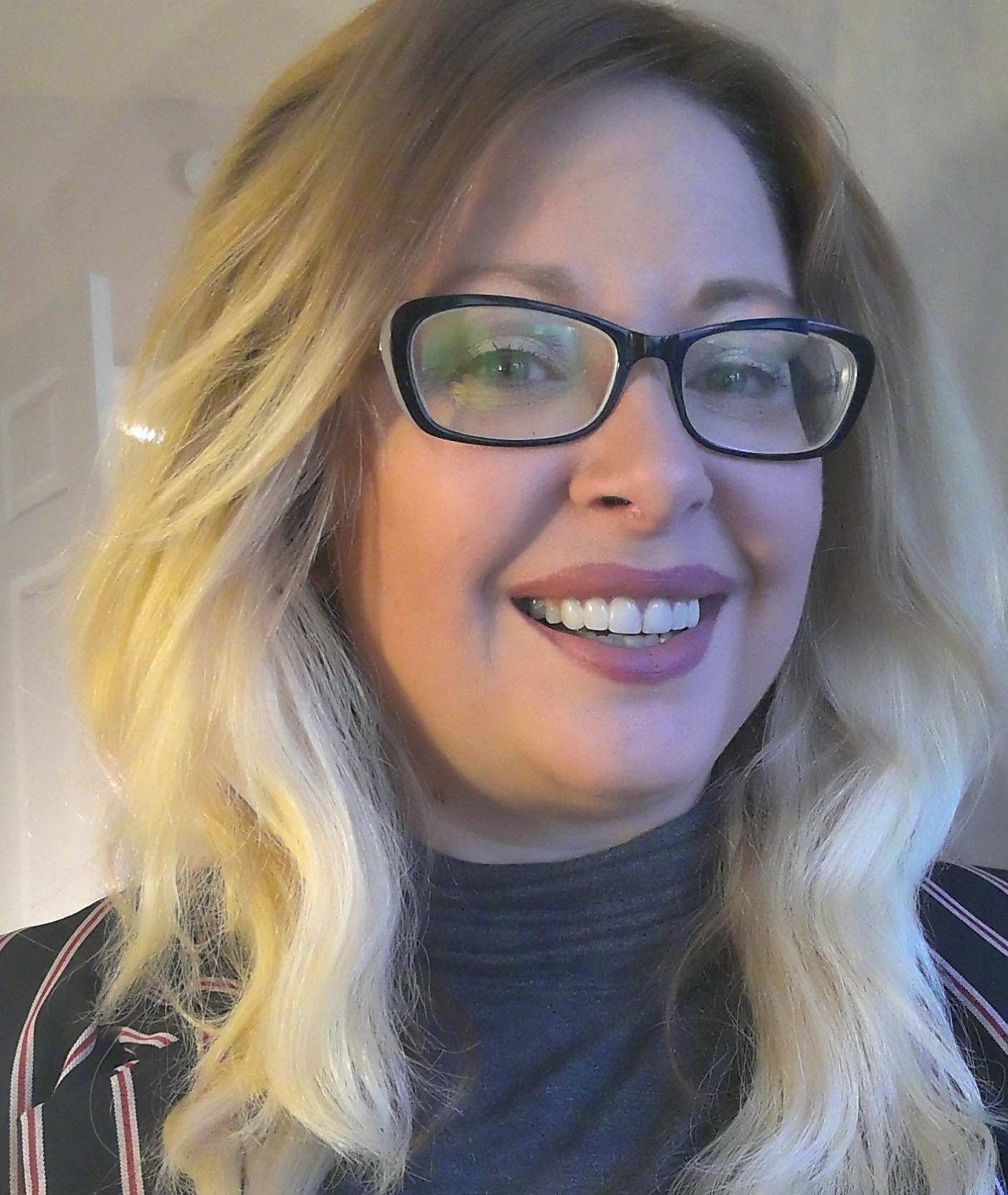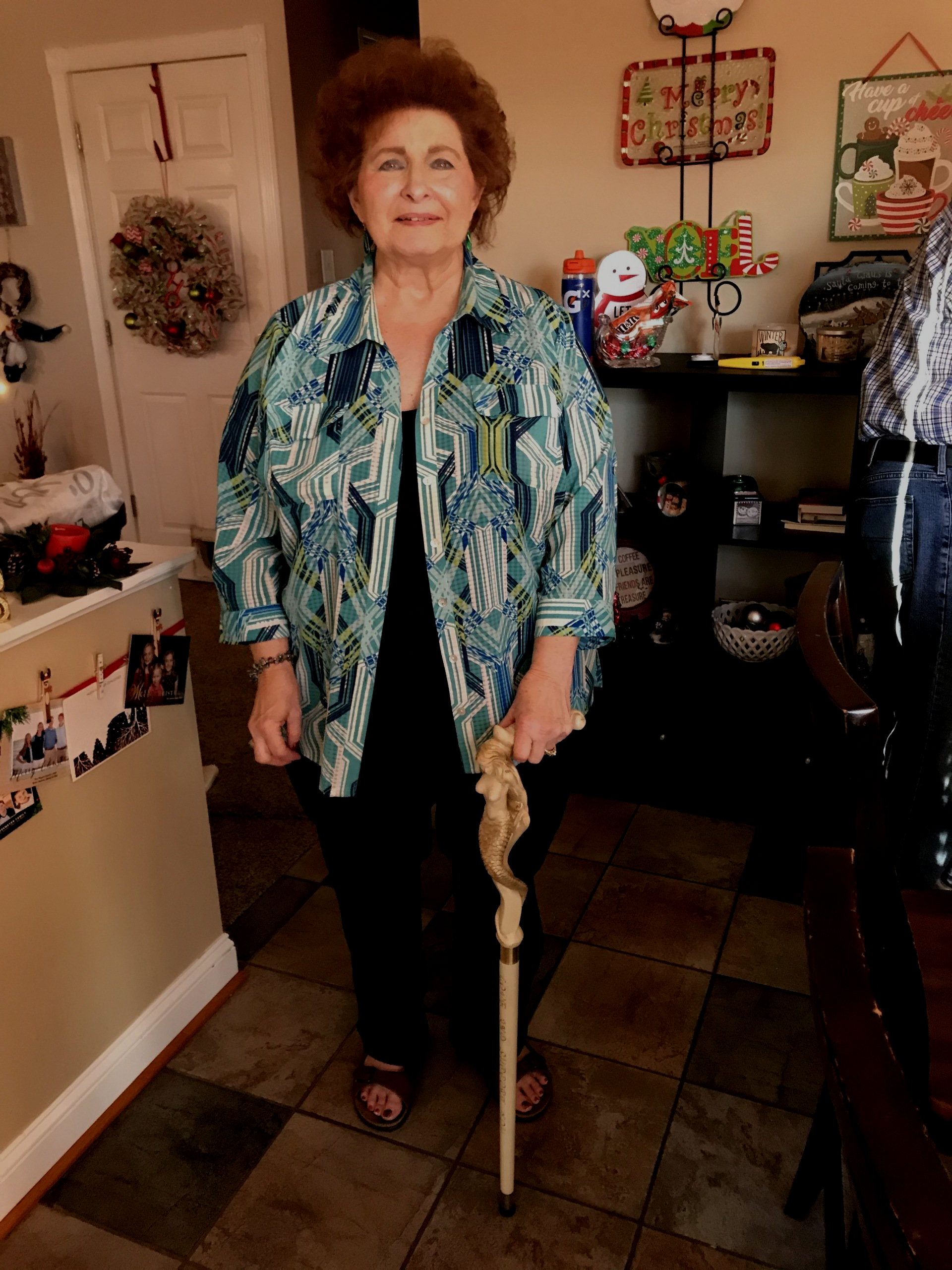Internalized Ableism: Finding Your Freedom to Participate in Life
AiArthritis Voices 360 Episode #15
Air Date: February 23, 2020
This episode join co-hosts Charis Hill and Tiffany Westrich-Robertson as they discuss the important topic of overcoming internalized ableism, both individually and as a society. They discuss the reasons people living with AiArthritis diseases may find it difficult to transition to identifying as a disabled person. Charis also shares insight on medical vs social models of disability and some suggestions for overcoming our invisible prejudices against disabled people. They also touch on the United States federal disability benefits application process. This episode is important for everyone! Learn more about Charis and Tiffany below.
LISTEN TO THE EPISODE THEN BE SURE TO TAKE A SEAT AT THE TABLE BY JOINING THE CONVERSATION!
(Scroll down the page to learn how!)
You can find, follow, and listen on Podbean, Spotify, Apple Podcast, or where ever you do podcasts. Please follow, rate, and subscribe to the show, then share it with someone. Be sure to check out our top-rated show on Feedspot!
Pull up your seat at the table
Now it's YOUR TURN to join the conversation!
What do you think about this episode?
We want to know what you think! By continuing the conversation with your opinions and perspectives - we all get a better understanding of the problems facing our community. Better yet, through these conversations we can start working and developing solutions.
We mean it when say 360. Not only do we want your input anytime and anywhere, but we also are eager to see where the conversation will take us. So please, "pull up a seat at the table" and let's start talking!
Email us at podcast@aiarthritis.org, message us on social media (find us by searching for @IFAiArthritis)
The AiArthritis Voices Program
Our AiArthritis Voices 360 Talk Show is just a piece of larger program - the AiArthritis Voices Program.
AiArthritis Voices is our program where people living with AiArthritis diseases and other stakeholders who we need 'at the table' to solve problems that impact education, advocacy, and research sign up to have a voice in our initiatives.
If you want to get more involved, and see more of the opportunities we have for you (and all stakeholders) please check out the AiArthritis Voices Program. Unite with others around the world to talk, learn, and connect.
Show Notes: Episode 15 ”Invisible Ableism”
00:52 - Tiffany welcome listeners and co-host, Charis Hill
02:34 - Charis was diagnosed with Axial Spondyloarthritis in 2013
02:45 - They applied for Social Security Disability Insurance less than 3 years later
03:18 - Living with Ax-Spa has affected them mentally and physically
04:16 - Charis considers their identity as a disabled person to be very empowering
05:43 - The definition of disability is any condition that restricts one or more activities of daily living, which applies to anyone living with chronic disease
06:04 - Based on this definition, everyone living with an AiArthritis disease is disabled from symptom onset
06:40 - Most people have a moment where they decide to use assistive devices, and that is often accompanied by a change in identity
06:59 - Ableism is discrimination in favor of the able-bodied
07:40 - Ableism normalizes able-bodied and neuro-typical individuals as the privileged class
08:32 - The medical model of disability mentioned before is what is used to define disability from a legal standpoint
09:05 - The medical model of disability blames the individual for being impaired and views them as incomplete or in need of fixing
09:14 - The social model of disability places the responsibility on society to make the world more accessible to all people, regardless of impairment
09:32 - “My disease impairs me, but society is what disables me”
09:41 - Disease does not prevent someone from entering a building. Society’s preference for stairs prevents them from entering the building or being able to participate.
10:24 - Internalized ableism is a fear of becoming or being disabled
11:34 - Children are socialized to blame their body for not doing what society says it should do
12:10 - Using assistive devices allows disabled people more freedom to participate in life
14:18 - Tiffany has avoided using devices that could improve her quality of life out of fear of being judged by others
17:41 - Part of the hesitation to use devices may stem from fear of letting go of their former identity
19:30 - Letting go of ability and losing privilege is a scary transition because you are completely shifting your outward appearance to the world
20:30 - Disabled people make up one of the largest minorities in the world, but also one of the most oppressed identities in the world
21:36 - Charis’ transition in identity began with using canes and wheelchairs in airports
22:13 - Why shouldn’t canes be accessories?
24:18 - Charis is sometimes politically motivated to park in accessible spots when they are not using their cane to normalize invisible disability
24:47 - If people confront Charis for parking in an accessible spot, they ask the person to please explain what a disabled person looks like
25:17 - Shortly after borrowing a wheelchair, Charis realized that they wanted their own wheelchair so they could be independent and participate in activities
27:46 - Never assume someone needs help or put your hands on someone’s wheelchair without asking
28:20 - In the same way you would obtain consent before touching someone’s body, you should always have consent before touching someone’s wheelchair because it is an extension of their body
29:18 - Sometimes non-disabled people have a tendency to treat disabled people as though they are not fully human
32:25 - There is so much value in our culture associated with working, which feeds ableism
33:50 - When your disease is unpredictable, it can be challenging to identify as disabled because you don’t feel disabled every day even though you have that disease every day
37:31 - Many people in the disability community are shifting to identity-first language (disabled person) vs person-first language (person with a disability), but you should ask about preference because there is not universal agreement
39:44 - On average, it takes 3-5 years in the United States for disabled people to receive federal disability benefits
41:40- Disability in the US does not pay a living wage, so there is a lot of fear associated with relying on that to survive
42:01 - The US discourages people from applying for disability benefits by making the application process very difficult, long, and expensive and by denying half of the applicants
43:42 - Charis recommends that anyone who applies for federal disability benefits in the US should use a disability attorney from the start
44:14 - Tiffany asks any international listeners to submit tips for applying for disability benefits in other countries
45:00 - Universal accessibility - which can apply to any space - is a model that seeks to maximize usability for as many people as possible
46:39 - Overcoming internalized shame - both as a society and an individual - is an important step to overcoming ableism
46:57 - At least 20% of the US population lives with a disability
49:00 - Buttons that make doors accessible to disabled people are not legally required to work in all locations in the US
51:00 - Eyeglasses are an assistive device that are now widely accepted by society, which demonstrates that shifts in acceptance can happen
52:20 - Tiffany thanks Charis for nominating the topic and coming on the show to lead the discussion
52:41 - Tiffany invites listeners to join the discussion on social media @ifaiarthritis on all platforms
53:00 - Listeners are invited to visit aiarthritis.org/podcast to submit topic ideas or get involved with the show
Patient Voices and All Other Stakeholders - Join our AiArthritis Voices Program and Connect to Opportunities to Have Your Voice Counted!
If you are a patient, a parent of a juvenile patient, or any other stakeholder (doctor, nurse, researcher, industry representative, or other health services person) - are you ready to join the conversation? It's your turn to pull up a seat. Join our new AiArthritis Voices program, where people living with AiArthritis diseases and other stakeholders who we need 'at the table' to solve problems that impact education, advocacy, and research sign up to have a voice in our initiatives. By signing up, you’ll get notified of opportunities to be more involved with this show - including submitting post-episode comments and gaining insider information on future show topics. Patients and all other stakeholders are encouraged to join so we can match you with opportunities to pull up a seat and TOGETHER - as equals - solve the problems of today and tomorrow.
AiArthritis Voices 360 is produced by the International Foundation for Autoimmune and Autoinflammatory Arthritis. Visit us on the web at www.aiarthritis.org/talkshow. Find us on Twitter, Instagram, TikTok, or Facebook (@ifAiArthritis) or email us (podcast@aiarthritis.org).
Be sure to check out our top-rated show on Feedspot!
Your Co-Hosts & Guests: Who is at the table this episode?
Charis Hill
Tiffany Westrich-Robertson
Love the show? Help us make sure we stay on the air by making a donation.
Your contribution helps us continue the work we do every day to improve the lives of millions worldwide.
Sign up for our newsletters
International Foundation for AiArthritis
6605 Nottingham Ave.
St. Louis, MO 63109-2661
Toll Free: 1-877-609-4226
Text: 1-314-282-7214
Copyright 2024. All rights reserved. Information on this site is intended for informational purposes only Our foundation does not engage in the practice of medicine. Please consult a physician to obtain personal healthcare and treatment options. 501(c) 3 Nonprofit Tax ID: 27-1214308.













